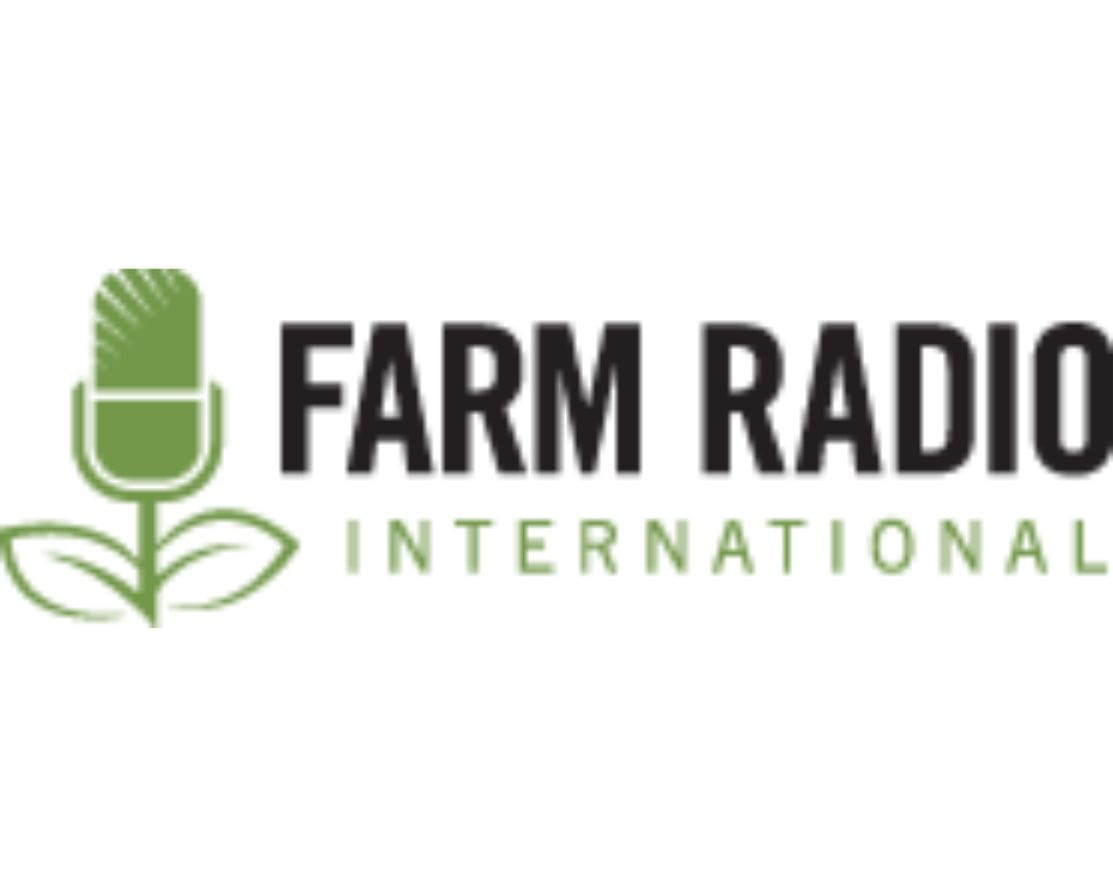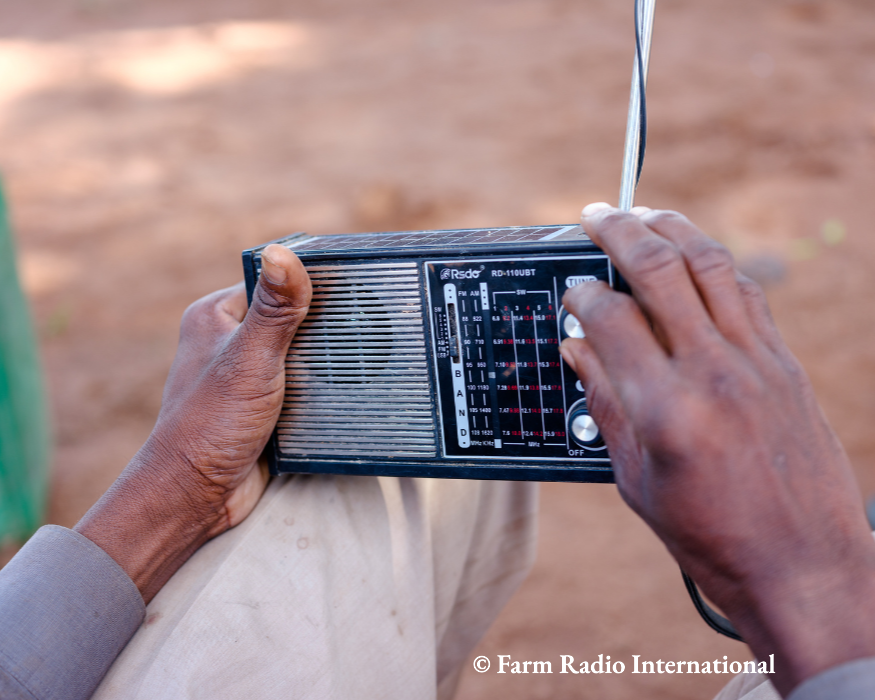On-Air for Gender-Inclusive Nature-based Climate Solutions by Farm Radio International
Project Information
The project aims to foster a shared understanding of climate change and the role of nature-based solutions (NbS) in addressing adaptation needs. By leveraging FRI’s innovative gender-responsive interactive radio programs, it highlights the voices, wisdom, and needs of rural women, men, and youth in adapting to climate change. The initiative seeks to expand access to information on NbS for climate adaptation across Sub-Saharan Africa (SSA), enabling rural communities to learn, customize, and apply these solutions. Additionally, the project includes a component to inform Canadians about the adaptation needs of SSA countries and the potential of NbS as a solution.
The expected results of the project include creating an enhanced environment that supports rural community action on climate change adaptation and biodiversity through locally-relevant, gender-inclusive NbS. It aims to increase the responsiveness of decision-makers to the needs and experiences of rural communities, particularly women and youth, in climate adaptation using gender-inclusive NbS. Furthermore, the project seeks to boost Canadian interest and engagement in supporting climate adaptation in developing countries through NbS.
Climate change and biodiversity loss are critical environmental challenges. Nature-based solutions (NbS) offer a pathway to a more equitable, inclusive, low-carbon, and nature-positive future, aligning with Sustainable Development Goals and Paris Agreement targets. Examples include restoring mangroves to protect coastlines, preserving wetlands to manage water and prevent floods, and reforesting to enhance soil and support intercropping.
As part of the G7 2030 Nature Compact, Canada has committed $5.3 billion to climate finance from 2021-2026, with 20% dedicated to NbS for climate action and biodiversity. This includes $315 million for Canadian and Indigenous organizations to support climate adaptation in Sub-Saharan Africa through NbS. For NbS to be effective, there is a need to understand their application, implementation, and sustainability. Initial consultations highlighted the necessity to explain NbS for climate adaptation, provide platforms for communities to voice their needs, and ensure recognition and support from authorities. The proposed initiative aims to bridge these gaps by enabling local communities, especially women and youth, to identify and articulate their adaptation needs through interactive radio programming. It seeks to enhance decision-makers’ responsiveness to community needs and create a gender-responsive environment for NbS. Additionally, the project aims to educate Canadians and Indigenous peoples about NbS and Canada’s role in supporting global climate adaptation efforts.
FRI’s work centers on interactive radio programming, which not only disseminates quality information but also engages listeners through call-ins, polls, and interviews, amplifying the voices of rural women, men, and youth. This approach includes having decision-makers respond to listener queries and gathering community statistics via cellphone surveys. Drawing from stakeholder consultations and past project insights, the initiative will employ two effective strategies to empower rural communities in nature-based solutions (NbS) for climate adaptation and influence policymaker actions. The “High Impact Radio Series” involves collaborating with top-performing radio stations in target countries to create programs focused on NbS for climate adaptation. These series will be co-developed with input from production teams, experts, policymakers, and diverse community members to ensure gender considerations in content and delivery. The aim is to elevate local community perspectives, particularly those of women and youth, to influence decision-makers and opinion leaders.
The “Scripts Plus Radio Series” will extend the content from the High Impact Radio Series by developing customizable resources on gender-inclusive NbS for climate adaptation. These resources will be utilized by at least 200 radio stations across 20-25 countries in SSA, with FRI providing remote support and revising resources based on feedback. In Canada, FRI will create audio stories based on African radio outputs to engage Canadians. This involves collaborating with Carleton University students to produce high-impact documentaries that showcase how communities combine traditional wisdom with new skills to enhance climate resilience and ecosystem protection. These efforts may include digital storytelling and other innovative formats. With over 40 years of experience in Africa, FRI has a strong track record of success, including projects funded by Global Affairs Canada. FRI will coordinate with the Partnership for Economic Policy and the International Institute for Sustainable Development to maximize the initiative’s impact.
The project involves 20 partner radio stations producing the High Impact Radio Series across six countries, reaching an audience of at least 8 million rural people. An estimated 50,000 individuals are expected to engage with the programs, generating over 1 million interactions throughout the project’s duration. Additionally, more than 200 radio stations using scripts from the series will broadcast nature-based solutions (NbS) for climate adaptation to a potential audience of 25 million people across Sub-Saharan Africa (SSA). In Canada, the public education and engagement program aims to reach around 300,000 people.
Expected outcomes include 1,000 SSA communities initiating or expanding actions using locally relevant, gender-inclusive NbS for climate adaptation. The project anticipates influencing 24 policy, strategy, or program initiatives by decision-makers at various levels, incorporating insights from On Air Dialogues that highlight the needs and experiences of rural communities, especially women and youth. Additionally, the project aims to increase Canadian engagement by 50% in supporting inclusive NbS for climate adaptation in SSA.

Project Data
Implementation Countries
News & Stories

